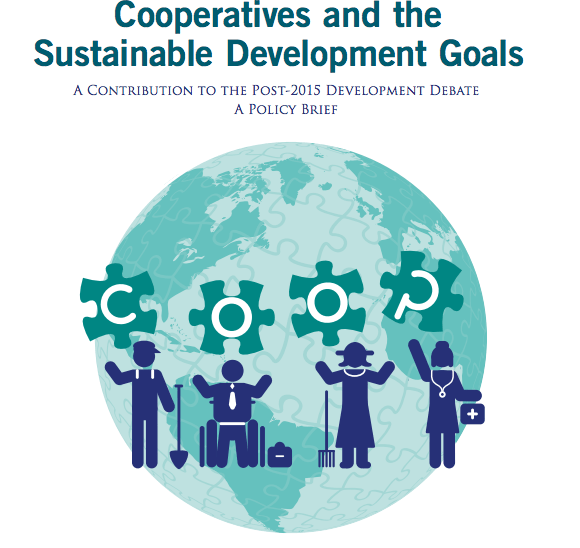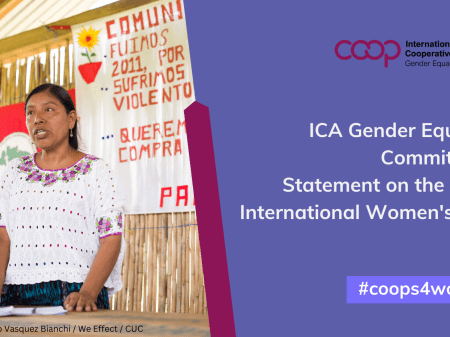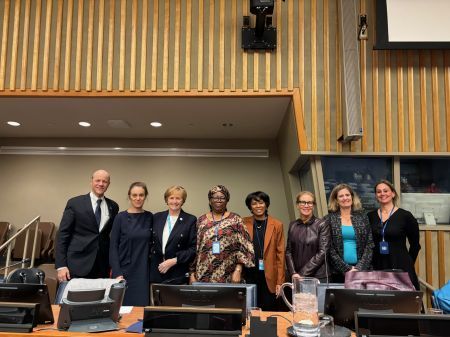
Cooperatives key to sustainable development, says ILO
Last year ILO Cooperative Unit launched a survey within the international co-operative movement to find out how the co-operative business model is contributing towards sustainable development, how the actors in the co-operative movement perceive the debate around the post-2015 development agenda, and which role co-operatives should play in this respect.
The findings from the survey show how co-operatives made a difference in achieving sustainable development goals with concrete actions and engagement at the local level.
On the occasion of the International Symposium “Cooperatives and the Sustainable Development Goals: Focus on Africa” co-organised by the Friedrich-Ebert-Stiftung (FES), the International Labour Organization (ILO) and the German Co-operative Confederation (DGRV) on 2 September in Berlin, ILO Cooperative Unit Chief Simel Esim explained why co-operatives are vital to reaching the goals of the United Nations’ post-2015 development agenda.
Elisa Terrasi, Development and Studies Officer of CICOPA, took part in this event and shared the results of the report “Co-operatives as builders of sustainable development”. She also underlined the substantial role played by industrial and service co-operatives for an equal creation and distribution of wealth, mainly through sustainable jobs and community services". The event represented a good opportunity to highlight the need for a coherent set of indicators and other tools in order to assess and measure the contribution of co-operatives to sustainable development.
Download here the report “Cooperatives as builders of sustainable development”.
Worker co-operatives from around the world will meet in Quebec
In conjunction with the International Summit of Cooperatives 2014, the Canadian Worker Cooperative Federation (CWCF) and Quebec Worker Cooperative Network (Réseau) are hosting a gathering for worker co-operators from around the world on Worker Cooperative Best Practices. This will take place in the afternoon of 6 October, just prior to the Summit Opening Ceremony.
Various successful worker co-operative strategies will be discussed, for example governance, approaches to better integrate new members, inter-co-operative business partnerships, and business succession to worker co-operatives. If you would like to propose presenting a best practice, please write to CWCF Executive Director Hazel Corcoran, hazel@canadianworker.coop, by 6 September 2014, or as soon as possible.
”Worker co-operatives and multi-stakeholder co-operatives from North America, Latin America, Europe and possibly beyond are expected. This is a unique opportunity allowing co-operators from different parts of the world to meet and exchange ideas”, said Hazel Corcoran.
Fees and more information here
Clothes 100% co-operative
The Textile Cooperative Network (La Red Textil Coopertiva) is a plan of productive chains in Argentina, that extends from small-scale co-operative cotton producers of Chaco to thread making, textile, cloth dyeing, cutting, designing and tailoring of garments in different provinces.
Today the network is developing its own mark and has over 50 co-operatives that with initiative aim to consolidate a type of decent work of high quality, in opposition with the precarious work that is so common within the sector. They have also managed to create an environment of social integration in sectors that are excluded from the traditional labour market, and which includes co-operatives of transsexual workers, HIV carriers or ex-offenders (as it is the case of the co-operatives Kbrones and Elefante Negro which are part of the chain).
The objective is to achieve mass production to address the challenge faced by textile co-operatives due to import substitution. With this aim, the Social Economy Secretary of the Social Development Ministry of Argentina, subsidised inputs of the primary chain that will stimulate the creation of 10,000 working groups.
Sewing for the smallest
On the other hand, the Textile Co-operative Network will be producing and commercialising official merchandise of the Argentinian children channel Paka Paka. The project is called Jugar (Play) - Jugueres Argentinos (Argentinian Toys) and involves the right to use the image of the cartoon Zamba, which is famous all over the country.
Twelve co-operatives of the network, through the right to use the image of Zamba, have already produced shirts and dolls inspired by the character. For Joaquín Sancha, representative of the Textile Co-operative Network said: “Through this type of agreements we can show that we have the capacity to produce things of first-class and compete in the market. Paka Paka competes with Disney, which make the Zamba project representative of our ideology. We agree with educating more children from a cartoon that talks about our history and national identity”.




